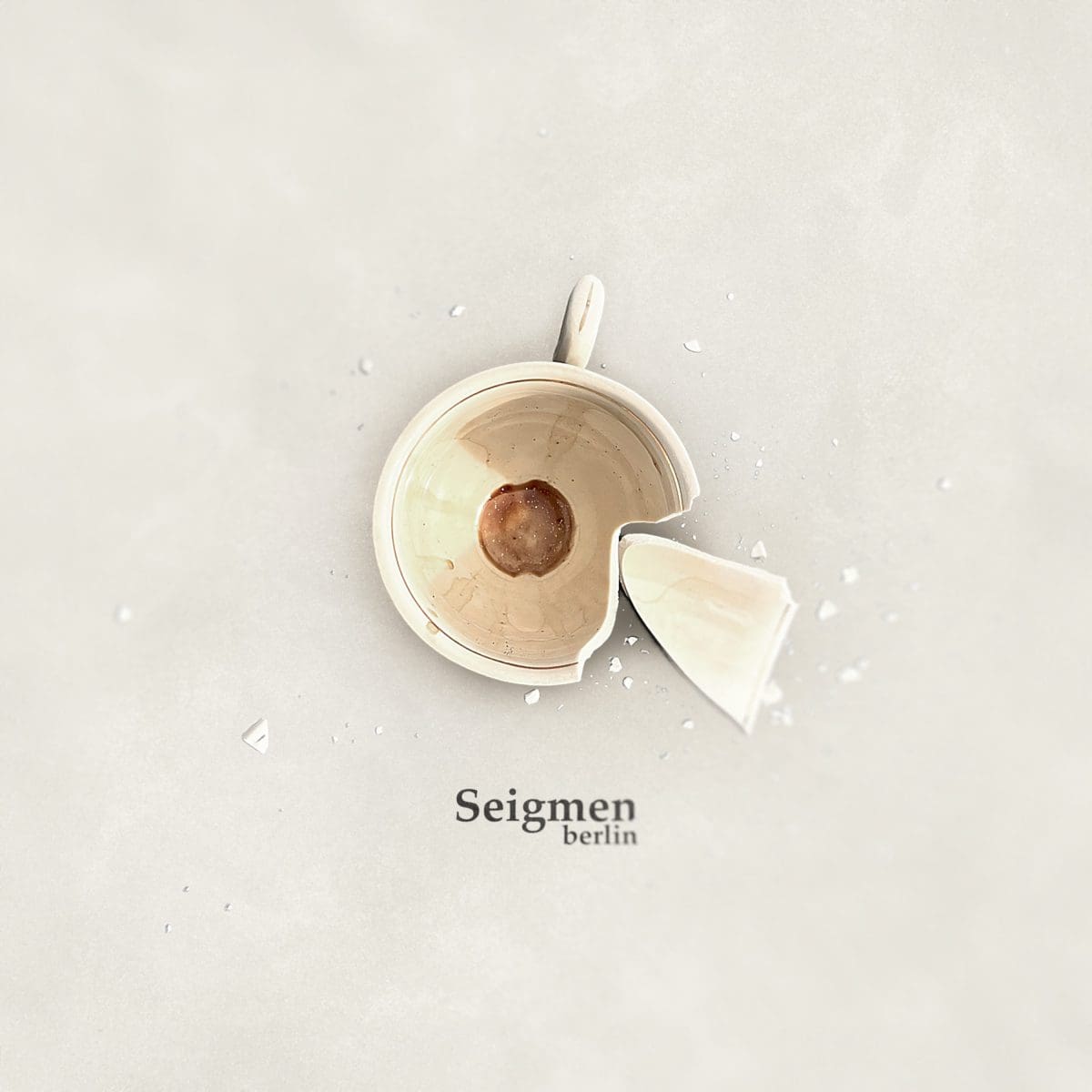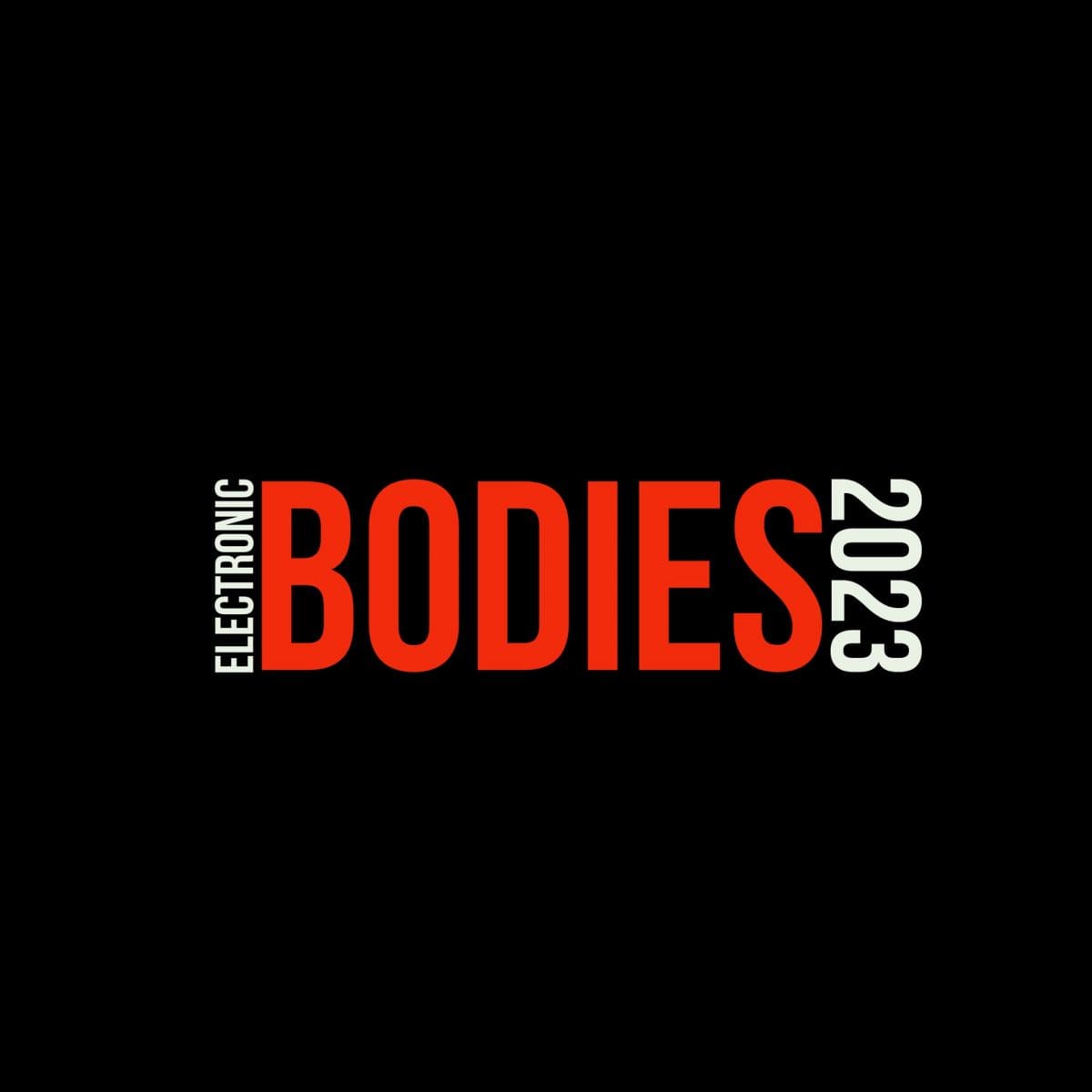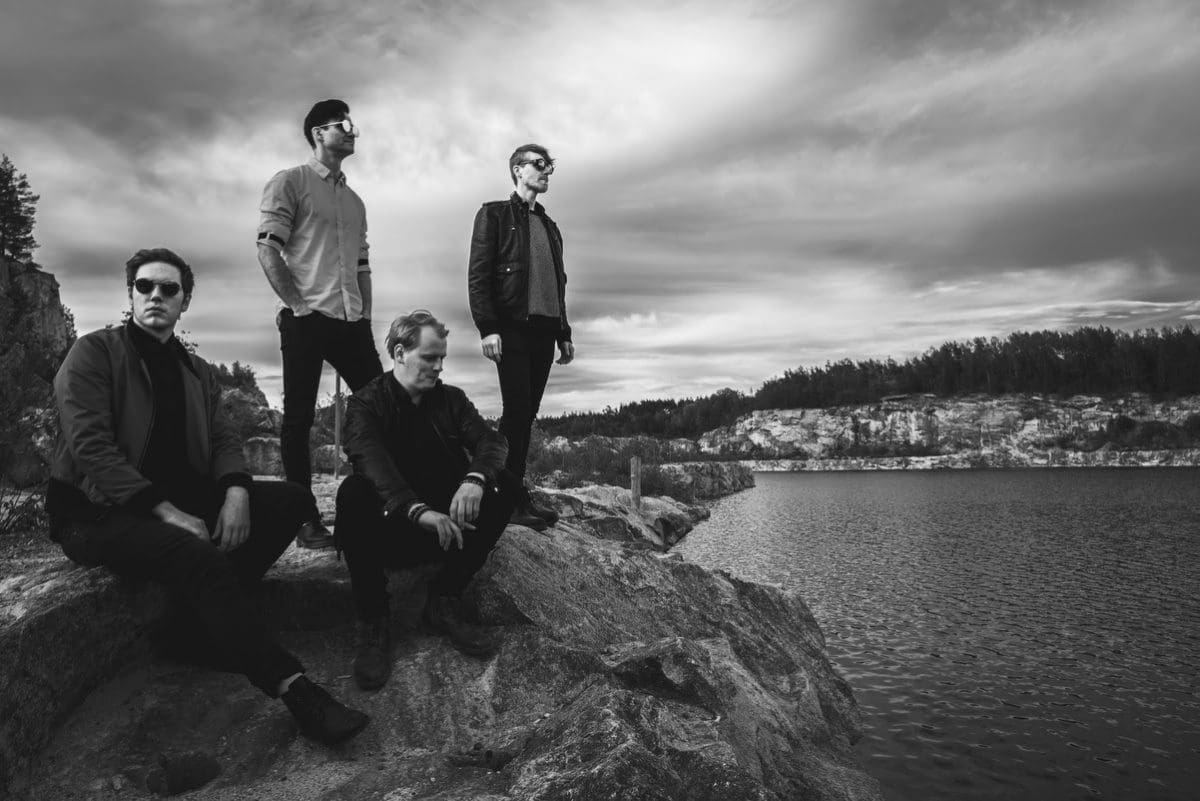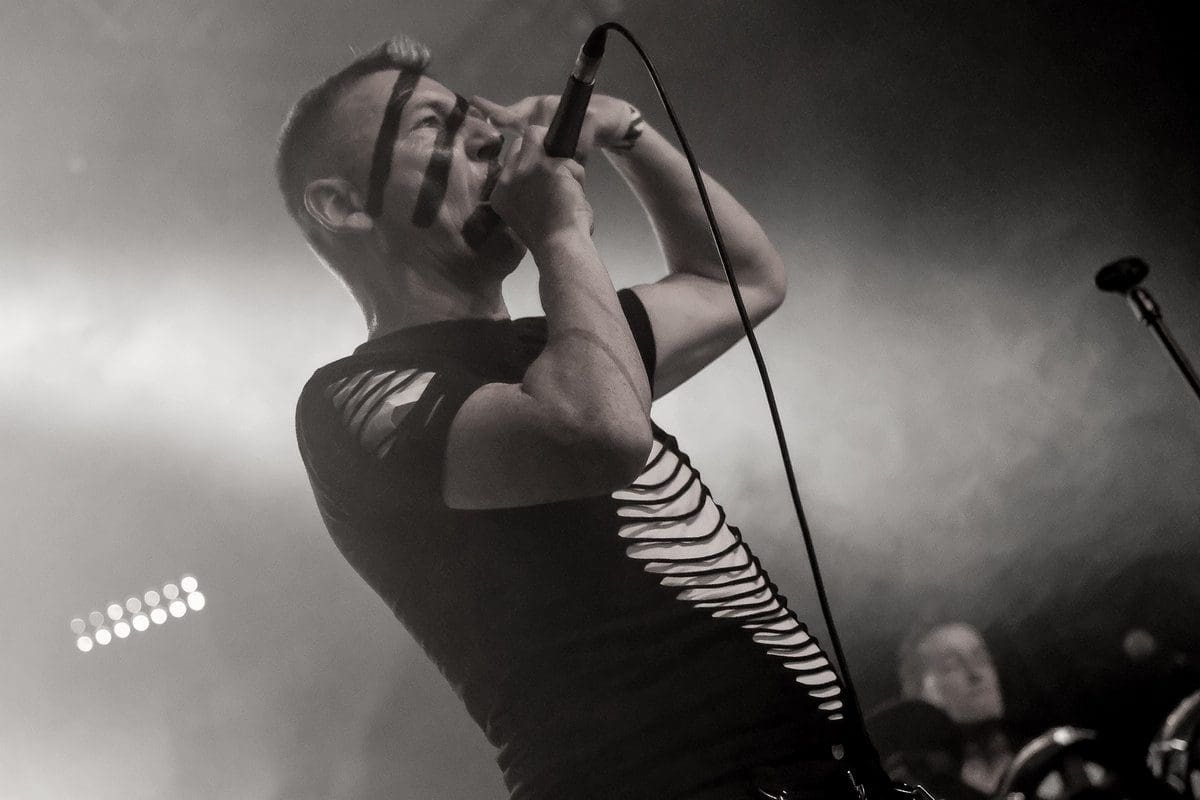‘Click Interview’ with Heimstatt Yipotash: ‘We Do Not Look For Disco Suitability Or The Satisfaction Of Listening Habits Or Expectations’
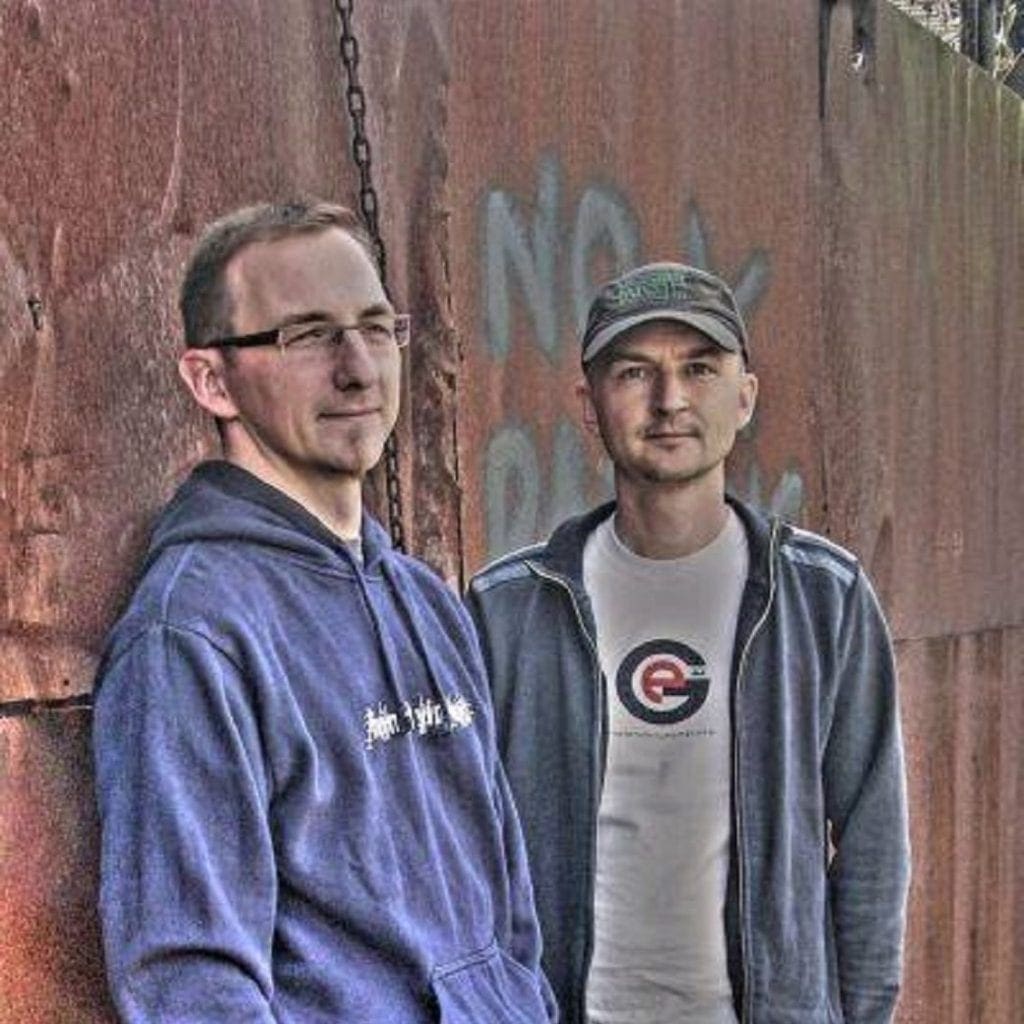

André Matthes and Thomas Niedballa started their music activities in 2001. A few years later they singed to HANDS and started to release heavy Industrial & Experimental productions under the HEIMSTATT YIPOTASH moniker. The new work “Brankmanship” is their first new album in six years, but also a work revealing a more sophisticated sound mixing Industrial, Rhythmic-Noise, Experimental and Industrial-Techno. I experienced the work as the fusion between power, melody and intelligence. Both artists had a lot to say about their work.
(by Inferno Sound Diaries)
Q: “Brinkmanship” is your first new album in six years! How does it feel to have released this new work after such a long time and why did it take that long?
André: I’m surprised myself that there’s such a long time between the two albums. The selective sense of time is sometimes very relative, I don’t feel that the time span since our last release “Mecanismos De Control” is that long. Nevertheless, six years is of course a long time in which a lot has happened, both in the small private sphere and on a global scale.
After “Mecanismos De Control”, which dealt in the broadest sense with the financial crisis in 2008 and the actions of the responsible actors behind it, we worked together with Mike Erkau (The_Empath) on our joint project Trackologists. The work on Trackologists’ debut album “No Surrender, No Retreat” proved to be very fruitful, inspiring but also time-consuming, so there was space for new HEIMSTATT YIPOTASH ideas during this time. It then took some time until we had enough material for new songs, and above all a unifying idea on the theme, a guide that should connect the tracks on the album.
We like to give our albums a story in which the songs are embedded and refer to each other. Storytelling is already important in our way of working, perhaps it also explains the longer intervals between our releases. In the early summer of last year we had all the songs ready, the tracklist was fixed and an intensive phase of fine-tuning followed. I listened to every song and the album almost every day for eight weeks and made some changes. It is really difficult for me to accept the track as finished and release it for mastering. That’s when the control freak in me comes through. Terrible 😉 Thomas does it a more Punk-style. Boarded up and good. Then I come and start to make some changes. But that’s only good up to a certain point, because at some point it gets smoother and more pleasing but not really better.
HEIMSTATT YIPOTASH has always stood for a certain amount of unspoken joy in experimentation, and of course I don’t want to and should not optimize it to the max. At the end of 2019 the master was finished and we were very proud to be part of it, I think I can speak for both of us. The album shows so many different facets and yet, in my opinion, never loses the red thread. It is an astonishing further development to its six years older predecessor, especially when you listen to both of them one after the other. Now, a good year after the completion of our songs, I can say for myself that I can still get excited about the titles, despite listening to them umpteen times. 🙂
Thomas: I feel like André: the previous album “Mecanismos De Control” is somehow still present and doesn’t seem so far away. However, after that album there was a bit of ‘air out’ and we concentrated on the joint project Trackologists with Mike. During this joint work we were able to benefit from Mike’s knowledge for our own composition and production process. Thanks to this input, we then invested much more time than before in the current album “Brinkmanship” to compose and produce the tracks as cleanly as possible without losing sight of the worn edges.
Q: That’s maybe why I experienced this new album as your most diversified production ever; a true mix between different influences. How do you explain the evolution from the early, rough Industrial productions till “Brinkmanship”?
André: I think the driving force behind our work is experimenting with our possibilities. Personally I was inspired by Rhythm Noise and related styles. Especially by the fact that you suddenly got the chance to become creative yourself. That was in the mid-nineties. Until then I was rather an enthusiastic consumer. Records and concerts -I took everything that excited me, and that was always very comprehensive. Whether AlternativRock, Grunge, Punk or Avant-Garde, EBM, DarWave, Rhythm Noise -I could and still can get enthusiastic about many styles.
That was my input, and has remained so to this day, with some small cutbacks. For every time and for every situation there is the right music for me. So at some point I started to become creative myself, using pickups and microphones to shape and record noises and soundscapes. In addition, I had the possibility to merge the whole thing together using simple PC tracker programs and thus record my first (mostly very repetitive) songs. In this phase I found a like-minded person in Thomas and from then on we complemented each other in initially still separate projects. In the following time we self-released some CDRs, which we mostly distributed to friends and acquaintances and played a handful of concerts in small clubs. Our equipment at that time consisted of two PCs including tube monitors, pickups and lots of stuff. At some point we were actually allowed to play at the “Maschinenfest 2004”, and so we joined the HANDS label there.
Label boss Udo Wiessmann offered us to release an album on HANDS. It was a huge thing for us, it was incredibly inspiring and expanded our possibilities enormously. From this time on we officially called ourselves Heimstatt Yipotash, in reference to the previous solo-projects. With the years and every further release the learning curve in what we did and how we made music increased. In addition to the initially dominant intuition and joy of experimenting, we also gained a growing understanding of songwriting. In principle, we taught ourselves to make music over time, we are the absolute autodidacts 🙂 And -as mentioned at the beginning, we experiment with the respective possibilities we have.
Thomas: Since the beginning of our musical journey together, we have loved jumping between drawers and playing with listeners’ expectations. We actually always do what we want to do and do not look for disco suitability or the satisfaction of listening habits or expectations. But at the same time we don’t turn a song around until it absolutely sounds “especially creative and different”. We are insanely happy that Udo has always allowed us this creative freedom and that we can release our albums on the HANDS label without ‘censorship’ or ‘creative guidelines’.
The songs of the first albums sound for us now, with the distance of the years, both from the composition rather ‘simple’ and low-fi. Also some of our own musical preferences are shifting, which is reflected in the current songs. You find more influences from IDM and other ‘song based’-styles than the more dominant Rhythm Noise of the earlier years. More stringency in sound and less jumping between genres could possibly be helpful to be more successful. But that has never been our motivation to make music. We want to entertain, but at the same time we want to encourage people to think, do research and also to exchange ideas. All the albums we have recorded so far reflect our view of society, the world and our environment at the time.
Q: Can you tell us a bit more about the writing and production process of the new songs? And what makes the chemistry between you both?
André: The driving force for each of our albums is usually to tell a story. The narrative element is already strongly pronounced. In the case of the debut “Storegga Effect”, for example, it was the cyclical sequence of major natural events with mass extinctions and the subsequent renewal or regeneration of the biosphere. The most narratively dense work to date, “Urban Night Motifs”, was a dystopian plunge through a dark, dirty and violent metropolis at night. We wanted to achieve a similarly dense atmosphere again on our current album, because I still like the soundtrack-like gloomy atmosphere very much.
The content of our songs is always close to the problems of the world and we have often addressed them. Also this time we created many songs that take a stand on global problems, so like new catchwords like genetic engineering, artificial intelligence, data surveillance or old scourges like war, corruption and abuse of power. Originally the album should be called “Tribunal” and it should be a kind of condemnation of the conditions. From today’s point of view, it seems to me to be richly bold and naively superficial. We had already taken this direction somewhat with “Mecanismos De Control” and we didn’t really want to go on further like this. We changed the context and formed the songs into a kind of taking status of the world today (“Artificial Ego”, “Fix, Find, Finish”, “Belt To Blender”). We contrasted this with our personal feelings, anger and powerlessness (“Progress”, “At the Edge Of Words”) and the desire to escape this mad world (“Step Into The Void”, “Separation”, “Trigger”).
Seen in this light, the current album is less combative than the previous one, but rather pessimistically resigned. Perhaps it results from the realization that no matter what happens, no matter how bad the disasters and wars will be, people still rarely learn from mistakes, and that in the end the predator prevails. Our way of working is usually to sit together (usually in Thomas’ arbor), connect our equipment and just jam away. Sometimes the first ideas come up, sometimes we just do sound exploration and fill our sample memory. The resulting song sketches are then moved back and forth a couple of times, and at some point the individual track develops its own character, which is then worked out. It’s not that we set ourselves a concept and then work it out, it all starts intuitively, almost like jazz from the gut. 🙂 If the track comes to life, it gets a name and is then shaped in the desired direction. When you finally compare the sketches and the finished track, you are amazed and get the impression that the song has a life of its own and we are just the obstetricians. It has always been like that, and I think that’s what makes up the way we work.
Thomas: Instead of the rehearsals and jam sessions that are usual with ‘classic’ bands, we have now established a well-functioning ping-pong method for us: if not out of jam sessions together, relatively many sketches are first created at my place. These are partly loops of only 10 seconds, but can also be rough song structures of three minutes. André takes over these beginnings and works on them with his own preferences and moods. This gives the sketches a completely new dynamic and complexity, which you often can’t even think of when you tinker with them alone. The nice thing about our joint work on songs is that nobody has a special role as ‘songwriter’ or ‘drummer’ or similar, but the songs can always develop without ‘selfish’ wishes or preferences. Neither of us has the claim to put more songs than the other on an album or to always have to listen to our own samples in the finished song. There are tracks that completely change their sound several times during their creation.
The possibilities of working with, in our case, Ableton Live are simply indescribably beneficial here. For us, it is amazing how the songs on the albums ultimately come together to form a harmonious product, without us planning it that way from the beginning. All our albums had a common thread, which we often only found during the ongoing creation process, without having to ‘bend’ the songs.
On “Storegga Effect” the mutual influences of environment and human beings on each other were the main theme. “Perpetual Beta” focused more on the mechanization of the world and the anonymization of the individual in society, but also on the simultaneous (self-zchosen) revelation of very private things, for example on the internet. “Urban Night Motifs” highlighted a modern and realistic, but also dystopian metropolis in the current time: psychological problems, pressure to perform, pollution of the environment, social injustice and increasing loneliness of people were the topics. “Mecanismos De Control” extracted this view on a political / social level, whereby we chose the situation in Argentina in 2001 as the main theme. “Brinkmanship” could now be interpreted as a once again ‘zoomed up’ view of the whole world politics and its influence on each and every one of us.
Q: “Brinkmanship” indeed appears to be a critical reflection about the world we’re living in. What’s your perception about the latest news events like the Covid-19 pandemic, the presidential election in the USA ao?
André: “Brinkmanship” is indeed a critical examination of the state of the world. The term means as much as the politics of absolute risk, the planning of one’s own destruction, the play with fire. There are many political examples, the policy of nuclear deterrence during the Cold War is only one of them. Even today, the term can be applied to many aspects. We have tried to cover some of the topics on the album, even if many things are missing (climate change, environmental destruction, etc.) There are many questions that most people are reluctant to ask, because the answers might question their way of living. Will artificial intelligence dominate us one day? Will we become slaves of omniscient networks and algorithms? How dangerous is genetic engineering? And is it ethically acceptable? What do animal experiments and factory farming and the perversities associated with them say about our humanity? These and countless other questions, some of them more or less philosophical, occupy our minds and are a recurring theme in our songs.
Much of this can be discussed controversially, and I too have no productive answers to many of them. Nevertheless it is important to ask these questions and to deal with them. Because if you don’t face it, you are much more receptive to ‘strong men with simple solutions’, which brings us back to the actual topic. The multitude of questions seems to overwhelm a large part of the people intellectually, there is no other way to explain, for example, a President Trump, Erdogan or Putin. In my view, Trump is one of the most stupid and incompetent people you can imagine at the head of such an influential superpower. But Trump is for me not the cause, but rather the symptom of a certain social and societal degeneration that can be observed throughout the Western world.
The most pressing current issue is the Covid-19 pandemic. The exceptional situation in which we are currently living is magnifying the acute social upheavals like under a burning glass and is a test of character for each individual. Whether and how measures to contain the infection will be effective will only be known when it is history, because much of it cannot yet be assessed. It is therefore easy to condemn decisions in retrospect and to know everything better. As a realist, I see the situation, recognize possible risks and try to avoid them without hysteria. In my opinion, it would sometimes be helpful for many people if they could look at things more soberly, abstractly and then stick to the facts. That way, prophets and conspiracy theorists of all colors would have less of an audience.
Q: Because of Covid-19 artists can’t no longer play live, which must be frustrating when you’ve a new album out. How do you try to face the situation and what do you expect from artistic activities during the next few months?
André: Of course this is extremely frustrating for us! Originally “Brinkmanship” was supposed to be presented at the “Elektroanschlag” festival or at the “Forms of Hands” and we had prepared some limited bundles with iron-on patches and stickers for the record release. Due to the Covid-19 pandemic and the restrictions, all this became obsolete. The release date was postponed to August, and unfortunately we had no chance to present the album live until now. And it’s through concerts that you can reach a larger audience. As far as that is concerned, we really fell victim to a bad time.
But it’s not just us! Much worse affected are artists who have to live from their art, who depend on the income. As far as that is concerned, we are well off as ‘amateurs’ and too much complaining would be somehow indecent. Well, what the future will bring, we will see. Maybe we will try ourselves as street musicians 😉 At the moment, it’s mid-October, the infection numbers are rising again and I don’t believe in a return of the festivals soon. What this means for the whole music industry, promoters and labels cannot yet be estimated, but the coming period will certainly not be easy. Many are acutely threatened in their existence. That is something you should bear in mind! Therefore: ‘Support your artists! Support your label!’
Thomas: Yes, it makes us sad not to be able to present the new material live and experience the feedback of the audience. But in the current situation we have the big advantage over musicians who have to earn their living by performing, that we both have regular jobs and therefore the band has been a pure hobby project from the beginning and doesn’t have to feed families. So we see the situation as very uncomfortable for us, but for the whole music industry, especially the independent labels and concert operators, with far greater concern and fear for the future of the many employees and enthusiasts.
We house label HANDS are also severely affected by cancelled concerts and closed clubs. This is the best way for each of us to help: Buy CDs and merchandise directly from the small, fine labels!
Q: Next to HEIMSTATT YIPOTASH you’ve been also involved with other projects. What can you express and maybe exorcize in these other projects –like TRACKOLOGISTS, and do you plan new releases?
André: I am cautiously optimistic when I say that there will be a sign of life from TRACKOLOGISTS in the near future. Optimistic, because all three of us have a great desire for it and already have concrete ideas for a release; cautious, because all three of us are involved in other projects and therefore many things simply go slower and need more time. It will probably be like with the first and so far unfortunately only TRACKOLOGISTS album: we will set ourselves a lot of goals, we will meet several deadlines and still get it finished. 🙂
Thomas: I think the chances of an upcoming release of the TRACKOLOGISTS are good. We love the project and the slightly different development process than at HYMSTATT YIPOTASH. TRACKOLOGISTS songs are much closer to the EBM and IDM than our own tracks, but working with Mike enriches our own way of working immensely as we benefit from his knowledge and set the bar high ourselves. Whether there will be another masterpiece of “No Go!” depends mainly on the simultaneous availability of (too) much time, extremely obscure sample collections and large amounts of alcoholic beverages…
André: Thanks for your questions and hopefully see you soon live!
Since you’re here …
… we have a small favour to ask. More people are reading Side-Line Magazine than ever but advertising revenues across the media are falling fast. Unlike many news organisations, we haven’t put up a paywall – we want to keep our journalism as open as we can - and we refuse to add annoying advertising. So you can see why we need to ask for your help.
Side-Line’s independent journalism takes a lot of time, money and hard work to produce. But we do it because we want to push the artists we like and who are equally fighting to survive.
If everyone who reads our reporting, who likes it, helps fund it, our future would be much more secure. For as little as 5 US$, you can support Side-Line Magazine – and it only takes a minute. Thank you.
The donations are safely powered by Paypal.

